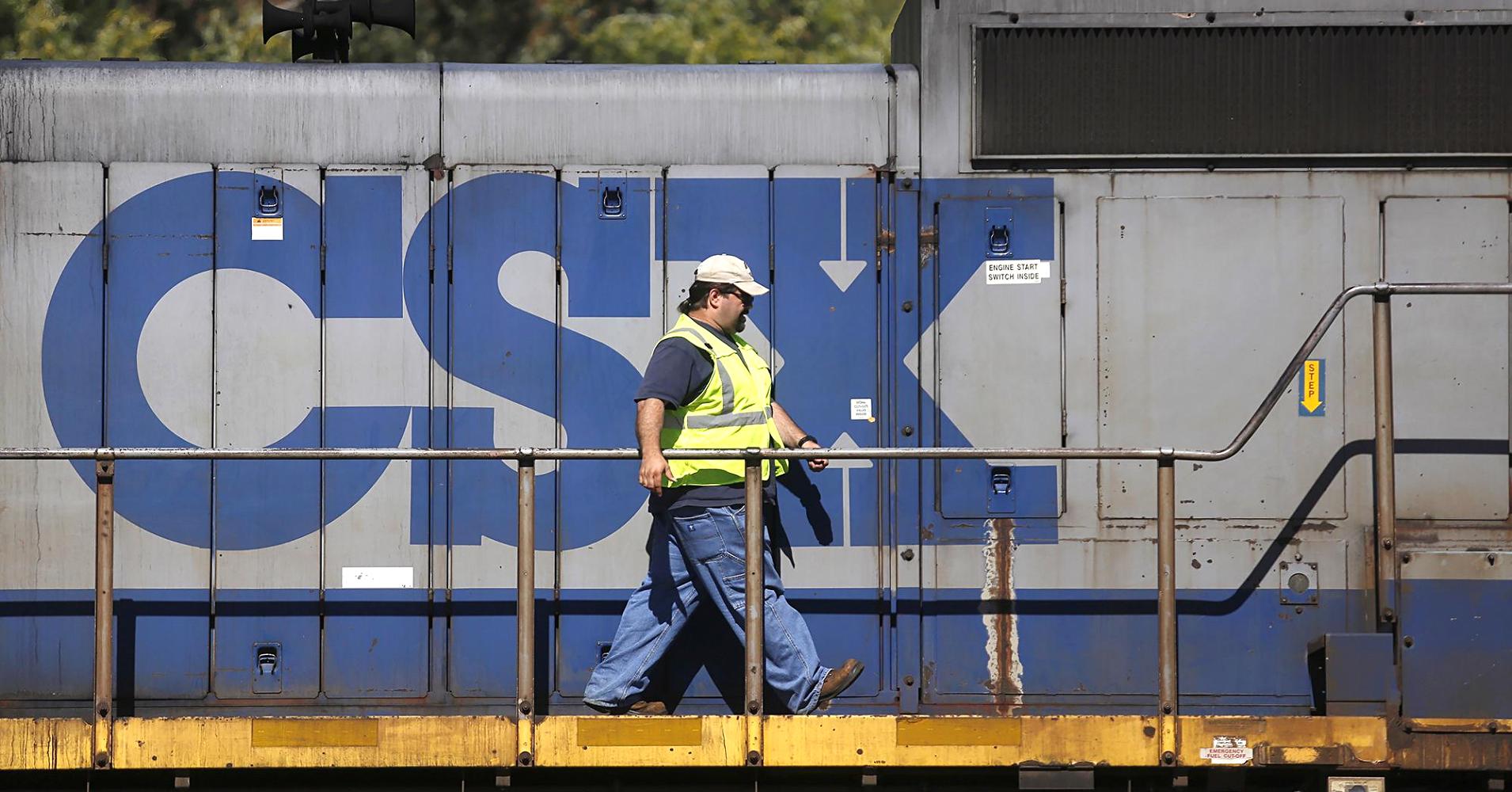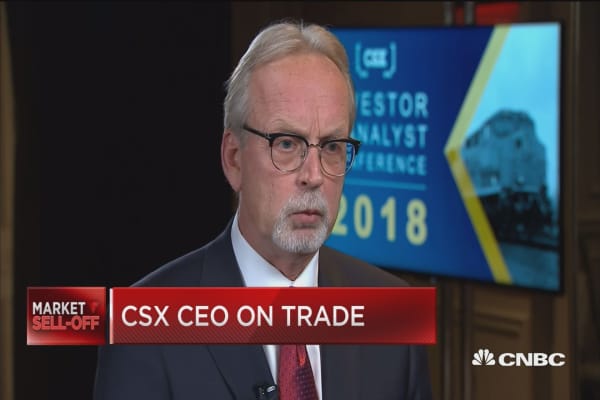- A 25 percent steel tariff means the price of steel will rise. CSX railways will pass along that price to its customers, says CEO Jim Foote.
- “Over time that cost, like everything, gets passed on,” he says.
- A bigger concern for the company, he says, is the future of NAFTA.
CSX railroad customers would likely bear the burden of an increased steel tariff, said Chief Executive Officer and President Jim Foote.
Closing Bell” on Thursday. “But over time that cost, like everything, gets passed on.”
Earlier Thursday, PresidentDonald Trump signaled heavy tariffs on foreign steel and aluminum will likely go into effect next week. The tariffs would raise the price of steel by 25 percent and aluminum by 10 percent.
The company, which has freight trains that cover territory throughout the eastern part of the United States, purchases steel primarily for use in its rails, Foote said. In addition, the railroad uses steel in its rail cars and locomotives.
But Foote, who has been CEO of the railroad since December, said his company uses “primarily good old U.S. steel.”
Shares of the Jacksonville, Florida-based transportation company’s stock closed up about 1.5 percent, at $54.52, on Thursday. Meanwhile, the Dow Jones industrial average fell more than 550 points after the president’s announcement on tariffs sent market watchers into a panic. The index recovered slightly but was still down 1.7 percent, or 420.22 points, by the close. The S&P 500 also declined 1.3 percent.
The tariffs, Foote predicted, “would have implications on both sides” for his company.
“[The tariffs] could be good for some of our domestic shippers,” he said. “We’ll wait and see what the fallout is.”
“The implications on CSX would be more along the lines of how NAFTA works out … and whether or not there would be any kind of material impact on the materials we bring in through the containers, through the seaports,” said Foote, who was in New York City on Thursday for CSX’s investor and analyst conference.
The seventh round of talks resumed this week over the future of the North American Free Trade Agreement. The accord, which came into effect in 1994 under former President Bill Clinton, establishes a free-trade zone among the U.S., Canada and Mexico.
While Foote said his team is watching the talks, he said his railroad is “lucky in terms of Mexican import traffic. That wouldn’t impact CSX as much as some of the western railroads. Our business partners, our manufacturers are located more on our territory.”
Still, he said there would probably be “modifications” with trade flows to both Canada and Mexico if the deal were to disappear.






Be First to Comment